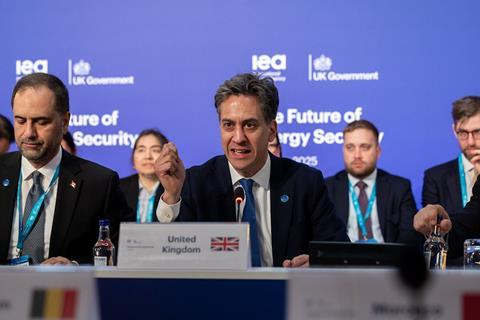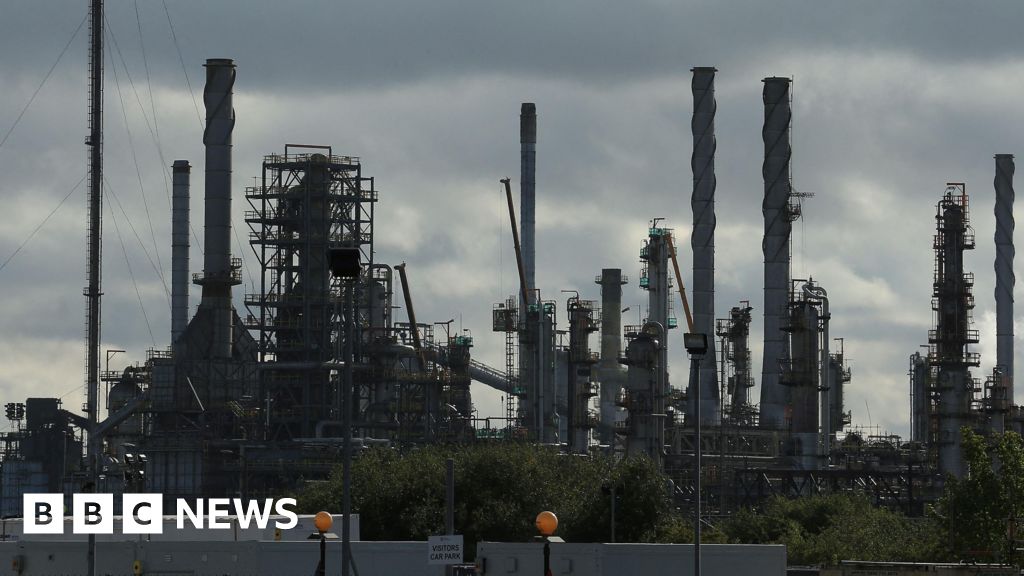Government ditches public sector decarbonisation scheme
Existing funding to continue until 2028 with subsequent plans to be announced in due course
The government has axed a scheme for upgrading energy efficiency in public sector buildings.
The Public Sector Decarbonisation Scheme (PSDS) delivered more than £2.5bn in its first three phases for measures such as heat pumps, solar panels, insulation and double glazing, with further funding of nearly £1bn recently announced.
But the Department for Energy Security and Net Zero (DESNZ) has told Building that the scheme has been dropped after the spending review, leaving uncertainty about how upgrades will be funded when the current phase expires in 2028.

The department said it would set out plans for the period after 2028 in due course.
In a post on LinkedIn, Dave Wakelin, director of sustainability at Gleeds, said he had waited for the release of the spending review with a “sense of trepidation” and was unable to find mention of public sector decarbonisation when Treasury documents were released.
“I hoped because it was already committed in the Budget that its omission wasn’t ominous,” he wrote.
Yesterday, he was told by Salix Finance, the non-departmental public body that delivers funding for the scheme, that it was no longer being funded.
It comes after the withdrawal of funding for the Low Carbon Skills Fund (LCSF) in May.
According to the government’s website, PSDS and LCSF were intended to support the reduction of emissions from public sector buildings by 75% by 2037, compared to a 2017 baseline.
“Neither LCSF or PSDS were perfect by any means, but they did provide a vital source of funding for local authorities, hospitals, schools and many other public sector organisations to save energy, carbon and money,” Welkin said.
“PSDS has helped replace failed heating systems in schools, keeping students warm. It’s replaced roofs on hospitals, helping patients recover from illness. It’s replaced windows in our prisons, improving security and stopping drugs getting behind bars.”
However, responding to Wakelin’s post, Steve Connolly, chief executive at Arriba Technologies, a low carbon heating and cooling firm, said that the scheme was being “mismanaged” with a small number of professional services firms “scooping up disproportionately large grants for their clients”.
The fourth phase of the scheme was confirmed last September, with allocations confirmed only last month.
This latest phase, which covers the financial years between 2025/26 and 2027/28, saw the distribution of £940m across the country.
A DESNZ spokesperson said: “Our settlement is about investing in Britain’s renewal to create energy security, sprint to clean power by 2030, encourage investment, create jobs and bring down bills for good.
“We will deliver £1bn in current allocations of the Public Sector Decarbonisation Scheme until 2028 and, through Great British Energy, have invested in new rooftop solar power and renewable schemes to lower energy bills for schools and hospitals across the UK.
“We want to build on this progress by incentivising the public sector to decarbonise, so they can reap the benefits in lower bills and emissions, sharing best practice across government and exploring the use of repayable finance, where appropriate.”
A government assessment of phase 3a and 3b projects identified a number of issues with the scheme, including delays and cost inflation, with more than a tenth being abandoned subsequent to grants being offered.
Stakeholders interviewed for the report also identified “difficulties in obtaining skilled contractors and equipment”, especially air source heat pumps.
The first come first served approach to awarding funding was also said to be “encouraging applicants to opt for more straightforward projects” and “potentially undermining the achievement of PSDS objective by restricting the opportunity for larger [and] more complex measures which may have delivered greater carbon reduction benefits”.
But the consensus among stakeholders and industry representatives interviewed for the report was that the scheme was “currently key to sustaining the existing UK heat pump market” and that it was “seen as vital in enabling many public sector organisations to invest in heat decarbonisation”.
You may also like...
Diddy's Legal Troubles & Racketeering Trial

Music mogul Sean 'Diddy' Combs was acquitted of sex trafficking and racketeering charges but convicted on transportation...
Thomas Partey Faces Rape & Sexual Assault Charges

Former Arsenal midfielder Thomas Partey has been formally charged with multiple counts of rape and sexual assault by UK ...
Nigeria Universities Changes Admission Policies

JAMB has clarified its admission policies, rectifying a student's status, reiterating the necessity of its Central Admis...
Ghana's Economic Reforms & Gold Sector Initiatives

Ghana is undertaking a comprehensive economic overhaul with President John Dramani Mahama's 24-Hour Economy and Accelera...
WAFCON 2024 African Women's Football Tournament

The 2024 Women's Africa Cup of Nations opened with thrilling matches, seeing Nigeria's Super Falcons secure a dominant 3...
Emergence & Dynamics of Nigeria's ADC Coalition

A new opposition coalition, led by the African Democratic Congress (ADC), is emerging to challenge President Bola Ahmed ...
Demise of Olubadan of Ibadanland
Oba Owolabi Olakulehin, the 43rd Olubadan of Ibadanland, has died at 90, concluding a life of distinguished service in t...
Death of Nigerian Goalkeeping Legend Peter Rufai

Nigerian football mourns the death of legendary Super Eagles goalkeeper Peter Rufai, who passed away at 61. Known as 'Do...



